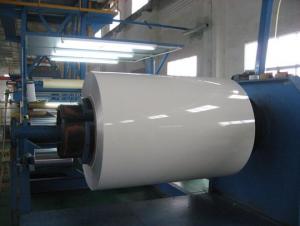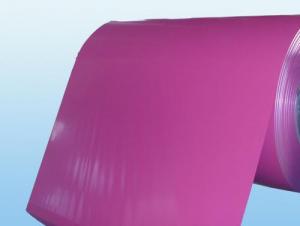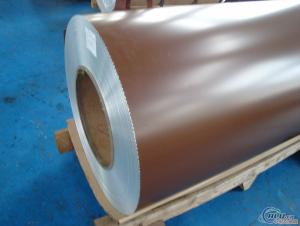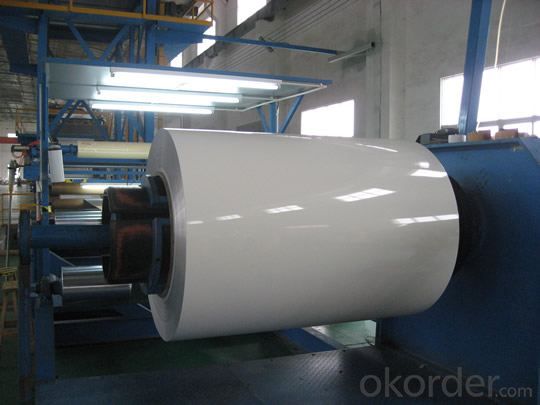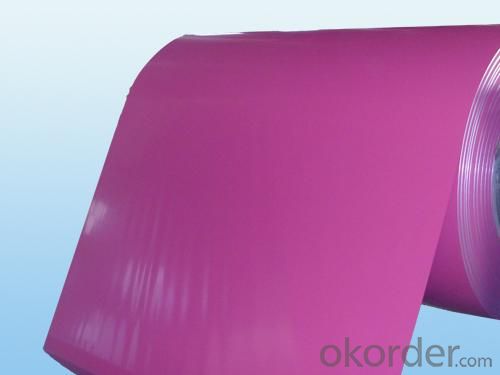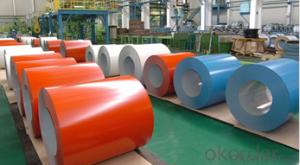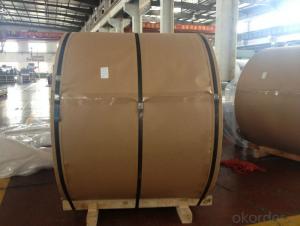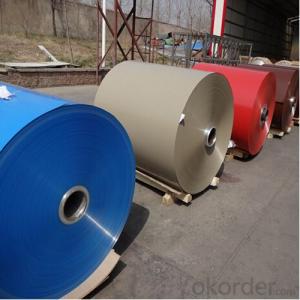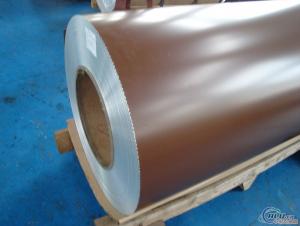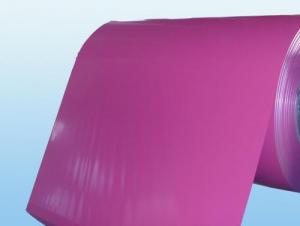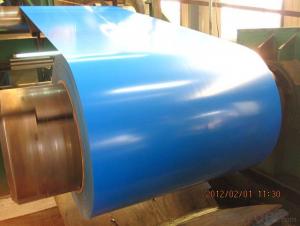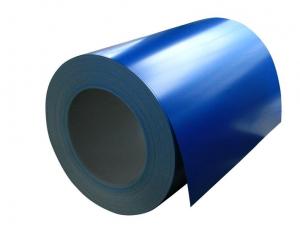Flat Rolled Aluminum Coil Indiana - PE Coated Aluminum Coil for Decoration AA5052 H14
- Loading Port:
- China Main Port
- Payment Terms:
- TT or LC
- Min Order Qty:
- -
- Supply Capability:
- -
OKorder Service Pledge
OKorder Financial Service
You Might Also Like
1.Structure of Product Description
PE Coated aluminium coils are widly used in decoration field. For the painting, it depends on the using evironment. If you use in the open air, we recommend the PVDF coated aluminium coils. This kind of painting can last 15-20 years. If you use in the room, we recommend PE coated aluminium coils. The price is much more competitive. Now we mainly exported to Asian countries, European countries, South America and North America.
2. Main features of the product
a.Competitive price---We have our own mills and can produce mill finished aluminium coils, so we can control the production cost better.
b.Professional after-sale service---We have more than 15 years exportation experience and you need not worry about the exporation problems.
c.Fast delivery time---We can control the delivery time within 35 days.
3.Image
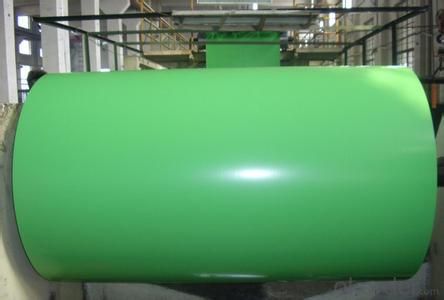
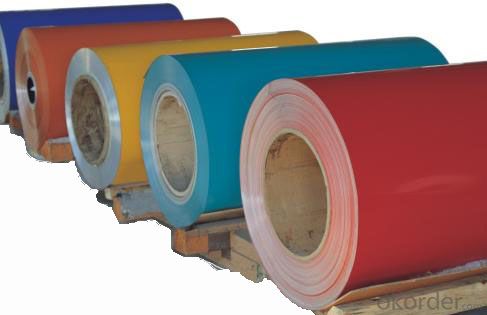
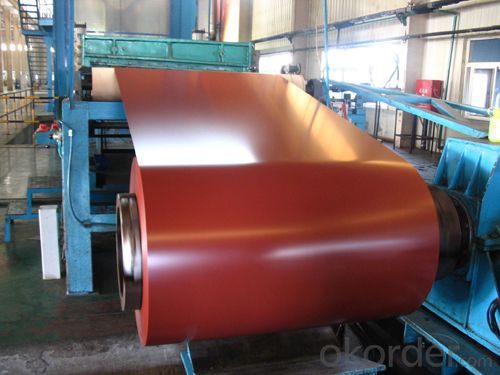
4.Product Specification
| Alloy | Temper | Painting | Durable time | Coil Weight |
| AA5052 | H14 | PE Coated | 10-15 years | about 2.5 tons |
5. FAQ
What is the quality standard?
---Usually our standard is GB3880-2006
What is the largest width?
---It is 2300mm
What is the MOQ?
---Usually we can accept 8 tons.
- Q: Can aluminum coils be used in electrical transformers?
- Electrical transformers can indeed utilize aluminum coils. Although copper is typically the preferred material for transformer windings, there has been a growing trend towards utilizing aluminum due to its cost-effectiveness and lighter weight. Distribution transformers, which are smaller in size and operate at lower voltages, often employ aluminum coils. However, it is important to consider certain factors when using aluminum coils in transformers. Aluminum has a lower conductivity than copper, necessitating larger cross-sectional areas for the aluminum coils to compensate for this difference. Furthermore, aluminum has a higher coefficient of thermal expansion compared to copper, requiring proper precautions to accommodate the differential thermal expansion between the aluminum windings and other transformer components. In conclusion, aluminum coils can be suitable for specific transformer applications, but it is crucial to meticulously execute the design and manufacturing process to ensure optimal performance and reliability.
- Q: Related technical standards of aluminium coil
- GB/T 10456-1989 anodized aluminium foilGB/T 9734-1988 chemical reagent -- General method for the determination of aluminiumGeneral specification for GB/T 9538-1988 strip cable connectorsComplexometric titration fluoride release method for the determination of three aluminium oxide content in GB/T 9489.4-1988 corundum powder twoGB/T 9438-1999 aluminium alloy castingsGB/T 8733-2000 cast aluminium alloy ingotsGB/T 6454-1986 getter aluminium zirconium alloy rings and sheets
- Q: What are the different coil packaging sizes available for aluminum coils?
- The customer's specific needs and requirements determine the available packaging sizes for aluminum coils. However, standard coil packaging sizes are generally found in the market. These sizes vary in dimensions and weights, ranging from small to large. Various common coil packaging sizes for aluminum coils include: 1. Small coils: These serve smaller applications or projects and typically have a diameter of 200-300mm and a weight of 50-150kg. 2. Medium coils: Suitable for medium-sized applications and projects, these coils usually have a diameter of 300-600mm and a weight of 150-500kg. 3. Large coils: Designed for larger applications or projects requiring a substantial amount of aluminum, these coils typically have a diameter of 600-1200mm and a weight of 500-2000kg. It's important to note that these are general guidelines, and the actual coil packaging sizes may vary depending on the manufacturer and specific customer requirements. Moreover, unique project needs often allow for the request of custom packaging sizes.
- Q: Explain how the use of aluminum coils impacts the welding speed and efficiency.
- <p>Aluminum coils can significantly affect welding speed and efficiency due to their thermal conductivity and melting point. Aluminum's high thermal conductivity means it dissipates heat quickly, which can slow down the welding process as more energy is required to maintain the necessary heat for fusion. Additionally, aluminum's lower melting point compared to steel can lead to faster melting, potentially increasing welding speed but also requiring more precise control to prevent overheating and defects. The use of aluminum coils can also influence efficiency through the type of welding process used; for example, TIG welding is often preferred for aluminum due to its ability to provide precise heat control, which can enhance both speed and quality of the weld.</p>
- Q: What is virgin aluminum? I can't find anything about it, is it just another word for aluminum? Is there a difference?
- virgin aluminum is, aluminum that has not been printed on, mixed with other metals etc. It is simply a more pure form of aluminum and will net more upon resale to a junkman
- Q: What are the potential applications of coil-annealed aluminum coils?
- Coil-annealed aluminum coils possess a wide array of potential applications across diverse industries. One example lies within the automotive sector, where these coils can be utilized to fabricate lightweight parts and components for vehicles. The inherent lightness of aluminum renders it an ideal material for enhancing fuel efficiency and reducing emissions. This makes it possible to manufacture body panels, chassis components, and structural parts for automobiles. Another field that can benefit from coil-annealed aluminum coils is the construction industry. These coils can be employed in the production of roofing, siding, and wall cladding materials. The corrosion-resistant properties of aluminum render it a suitable choice for applications exposed to outdoor elements, where durability is paramount. Furthermore, the lightweight nature of aluminum simplifies handling and installation, thereby mitigating labor and transportation costs. The packaging industry also holds promise for coil-annealed aluminum coils. Aluminum proves to be an excellent material for food and beverage packaging due to its non-toxic, odorless, and impermeable attributes. Consequently, these coils can be utilized to manufacture cans, foil wraps, and pouches, providing a safe and hygienic packaging solution. Furthermore, the electrical and electronics industry can leverage coil-annealed aluminum coils. Aluminum boasts exceptional electrical conductivity, making it suitable for power transmission lines, electrical components, and heat sinks for electronic devices. Its lightweight nature further facilitates handling and installation in various electrical applications. In summary, coil-annealed aluminum coils offer versatility, durability, and lightweight properties that make them an excellent choice for a multitude of manufacturing needs across various industries. From automotive to construction, packaging to electrical, the applications for these coils are diverse and far-reaching.
- Q: Are aluminum coils suitable for air conditioning systems?
- Air conditioning systems can utilize aluminum coils, which are commonly employed due to their numerous advantages. Firstly, aluminum, being a lightweight material, facilitates ease of handling and transportation during installation. Additionally, this lightweight characteristic reduces the unit's overall weight, rendering it more energy-efficient. Moreover, aluminum coils possess exceptional heat transfer properties, thereby enabling efficient air cooling. They exhibit enhanced thermal conductivity, facilitating rapid and effective heat transfer. Consequently, this leads to improved cooling performance and enhanced energy efficiency, resulting in reduced electricity consumption and long-term cost savings. Furthermore, aluminum coils surpass other materials, such as copper, in terms of superior corrosion resistance. Given the exposure of air conditioning systems to moisture and humidity, this resistance is crucial. Aluminum coils can withstand these conditions without corroding or deteriorating, ensuring a longer lifespan and reliable performance. Another advantage of aluminum coils lies in their affordability. Aluminum is a cost-effective material, making it a favored choice among air conditioning manufacturers. This affordability subsequently translates into lower costs for consumers, making air conditioning systems more accessible and economically viable. In conclusion, the suitability of aluminum coils for air conditioning systems is evident due to their lightweight nature, impressive heat transfer properties, corrosion resistance, and affordability. They offer efficient cooling capabilities, durability, and cost-effectiveness, establishing themselves as the preferred choice for air conditioning units.
- Q: How do aluminum coils withstand extreme weather conditions?
- Aluminum coils are designed to withstand extreme weather conditions due to their inherent properties and construction. The aluminum used in these coils is highly resistant to corrosion, allowing them to endure exposure to moisture, rain, snow, and even saltwater without deteriorating. Additionally, aluminum coils have excellent heat transfer capabilities, enabling them to dissipate excessive heat and prevent damage from high temperatures. Moreover, they are sturdy and durable, enabling them to withstand strong winds, heavy storms, and even hail. Overall, the combination of corrosion resistance, heat transfer efficiency, and robust construction make aluminum coils well-equipped to endure harsh weather conditions.
- Q: Explain how the temperature affects aluminum coil properties and behavior.
- <p>The relationship between aluminum coil and temperature is significant as temperature influences the coil's physical properties and performance. At lower temperatures, aluminum coils become more brittle and susceptible to cracking or breaking. As the temperature increases, aluminum's ductility improves, allowing it to be more easily shaped and formed. However, excessive heat can also lead to deformation and loss of strength. The thermal conductivity of aluminum is high, meaning it conducts heat well, which is useful in applications requiring heat transfer. Additionally, the electrical conductivity of aluminum is affected by temperature; as temperature rises, resistance increases, which can impact applications where electrical conductivity is critical.</p>
- Q: A certain ionic compound is made entirely of aluminum and oxygenWhat is the formula for this compound?
- Aluminum Oxide Al2O3
Send your message to us
Flat Rolled Aluminum Coil Indiana - PE Coated Aluminum Coil for Decoration AA5052 H14
- Loading Port:
- China Main Port
- Payment Terms:
- TT or LC
- Min Order Qty:
- -
- Supply Capability:
- -
OKorder Service Pledge
OKorder Financial Service
Similar products
Hot products
Hot Searches
Related keywords
